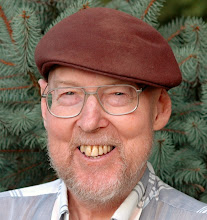In a recent post on the Organizational Development Network list serve leadership coach Ann Kruse noted that she is “fascinated by Hillary Clinton's decision to avoid the word 'mistake'
with regard to her vote for the
Ann offered a variety of explanations for Hillary’s action including gender and power issues. I’d like to offer another. As someone who became disabled as a teen and then has held a variety of leadership positions all of my adult life I am aware of the tremendous pressure on leaders to be capable and self-assured and, at the same time, I am aware that leaders are as vulnerable as the next person.
I learned to survive and build on the experience of being physically disabled by being open about the emotional trauma linked with the experience. When I began my career as a leader, I felt internal and external pressure to be the strong, capable, self-assured male. At the same time being capable and self-assured is only part of my story since I need to ask for physical help regularly and I am physically and emotionally vulnerable to an unpredictable disease.
To be an integrated leader I try to be both capable and acknowledge my vulnerabilities. Even the most powerful leaders and organizations are vulnerable. Take the
insurgencies. Our political leaders spend a lot of energy denying our vulnerabilities and mistakes.
While I try to be capable and self-assured as a leader, I assume that I will make mistakes and I make it a point to readily admit my mistakes. It takes a lot of energy to deny mistakes. I also make it a practice to meet three times a year with two mentors who are separate from the organizations I lead. I share my emotional vulnerabilities as a leader, husband, and father
with them. It takes a lot of energy to ignore ones vulnerabilities.
I feel sympathy for Hillary Clinton who, to put it mildly, is under extreme pressure to show herself to be a capable, self-assured person in order to be elected. At the same time, running for political office at that level makes one extremely vulnerable.
From an organizational development perspective we as a nation demand strong, capable, leaders and, as a consequence, we get leaders who deny our nation’s vulnerabilities and their own mistakes.
A humble hierarchy organization learns from critics inside and outside the organization. It’s tough to lead a world power from a humble hierarchy stance making it difficult for a world power and its leaders to admit and learn from their mistakes.


1 comment:
Hi Rich,
This post really resonates with me.
The best leaders, in my view, are "whole persons," who bring both their giftedness and their brokenness to the organization they are part of.
See my blog entries on this:
http://learningvoyager.blogspot.com/2005/06/nine-steps-to-successful-organization_12.html
and
http://learningvoyager.blogspot.com/2006/04/leadership-requires-whole-person-heart.html
(BTW: I was following this topic on ODNet, then noticed via Bloglines, that you are continuing it here at 7 paths blog. I sometimes do the same thing, starting at ODNet, then shifting to my blog, Here We Are. Now What?)
Great post.
Regards,
Terry
Post a Comment